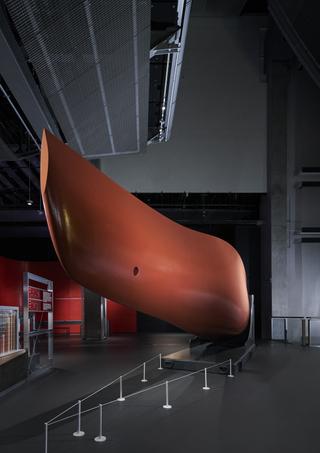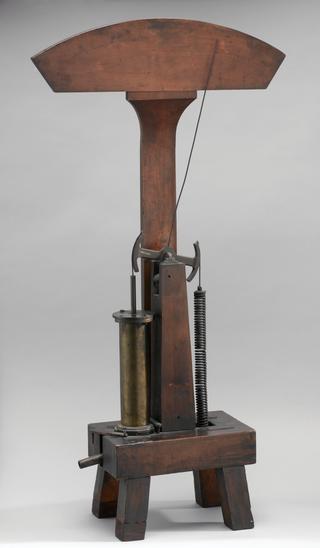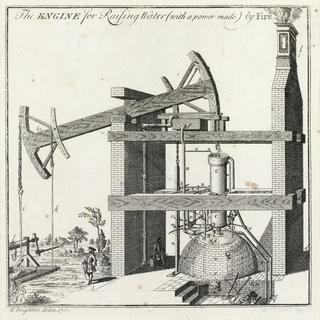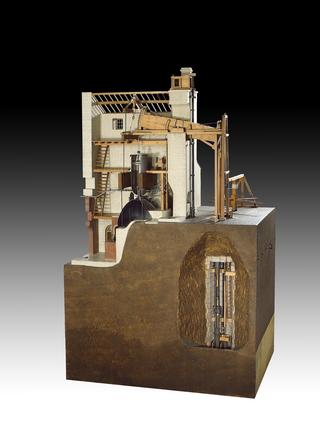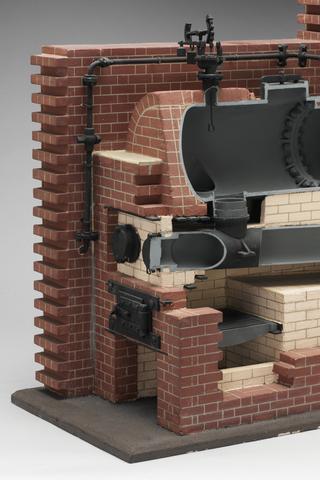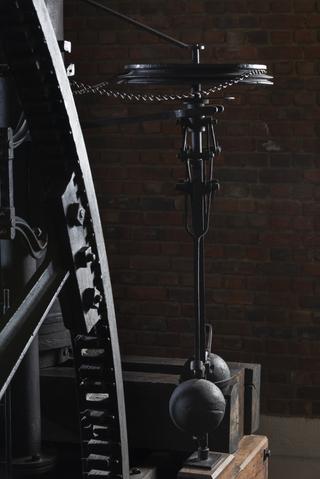








Mechanical tachometer, made by Smiths, 1950-59, to measure speeds of up to 4,000rpm. Used by the North-West branch of the National Industrial Fuel Efficiency Service (NIFES).
This mechanical tachometer is a revolution-counter measuring revolutions per minute (RPM) with a maximum 4000 RPM. An engineer would use the instrument to measure the rotation speed of a shaft or disk in a motor or other machine. Data was used to make energy appraisals and used to test efficiencies.
The fuel economy of the UK changed dramatically between the 1930’s and 1940’s. An excess of domestic fuel production in the 1930’s became a serious deficiency by the late 1940’s.
The government nationalised the fuel industry with the Electricity Act 1947. It merged over 600 individual companies into 12 area boards. The National Industrial Fuel Efficiency Service (NIFES) was established in 1953 to advise on fuel efficiency for users and producers.
NIFES engineers performed energy audits and surveys, emissions testing, efficiency advice and delivered training courses. Today NIFES still supplies clients with independent energy related consultancy.
The number 1-09 1803 shows this instrument was listed on the Instrument Room’s inventory. Engineers requested instruments for each job and took them out in NIFES vans. NIFES Northwest division was based on Oxford Road in Manchester then moved out to Altrincham.
Details
- Category:
- Motive Power
- Object Number:
- 2016-2013
- Materials:
- metal (unknown) and glass
- type:
- tachometer
- credit:
- Inenco Group Ltd
